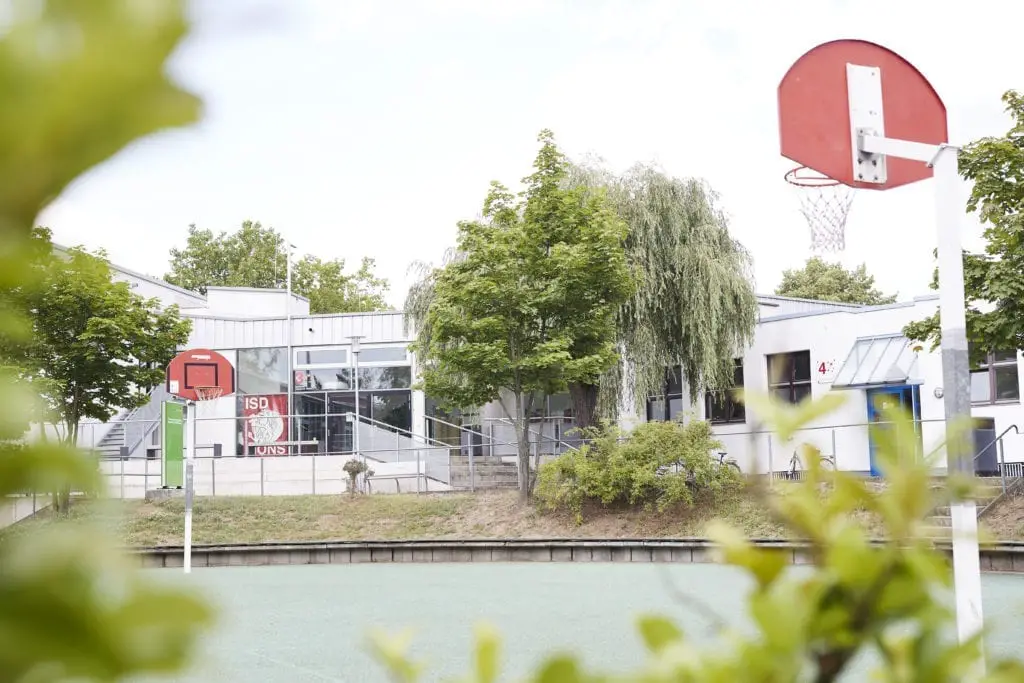Moving to Düsseldorf in 2015 was a wonderful, terrifying but ultimately rewarding experience. While we moved from England to Düsseldorf for my husband’s job, in truth, we had always wanted the adventure of living abroad.
Before confirming the job and benefits, we began researching education options in Düsseldorf. At the time, our two boys were ages 5 and 7. They were (and still are!) kind, funny, clever boys. When the search began, we believed our assignment would be for three years. That timeframe has been happily extended.
We were lucky that our relocation agent was able to show us around the local international schools and neighborhoods during several very cold December days. It was definitely December, because every time the experience overwhelmed me, my husband took me to a Weihnachtsmarkt for Glühwein.
In the end, we chose the International School of Düsseldorf (ISD). This has been the right choice for our family. Our children thrive in the school environment, particularly with open classrooms and the ability to explore topics as part of the IB programs.
I believe that each family’s school decision is unique based on the factors that are most critical for their circumstances. However, it is important to think through several things when making your school choice.

Here are what I believe are the 5 most critical factors:
1 – Will my child be happy at the school?
This is the number one question that any parent considering a change has for their child. Our family considered both short- and long-term happiness.
- Short-term: Does the school have a good anti-bullying policy?
- Long-term: Will the school provide them with good qualifications for further education?
We asked many questions about the support given to students when starting from a different culture. The happiness of our children was our number one criteria.
2 – How does the education philosophy compare to the one in our home country?
This was an agonising question for us. Was it better to have the children remain in the same schooling system or did we want to offer them a chance at a different type of education? If we repatriated back to the UK, would the children be ok? I was reassured by several factors…
- Did you know there are at least 3 million different “facts” that we could teach our children at any given time? Who decides what is an important and essential fact? In the UK, we think that the 6 wives of Henry VIII are important facts. But if my children go onto to live in Japan, does anyone care that they don’t know that Anne of Cleves was wife number 4?
- School is not just about maths and science, it’s also about socialising and learning to work with others. In all international schools, the mix of cultures and languages means that on any day you can be playing with a European, South American and/or an Asian child on the playground.
- Do we want the children to be tested regularly on their learning or do we encourage inquiry-based learning? To be honest, we had never considered these questions but we knew we didn’t like the way our children had been graded at 4 years old and told what they were “good” or “bad” at, particularly so early in their school careers.
3 – Size and infrastructure
We wanted the children to go to a larger school, especially since the international community moves around a lot! We learned from experience, it is really hard to watch your children say good-bye to their best friend. As a result, finding a school with several classes for each grade – so our children had a choice of friendships – was an important criterion. As a parent, you look for modern technology, a good student/teacher ratio, and a nice school gym. Our children picked their favourite based on the playground!
4 – After school activities
Making sure that the children have a wide range of opportunities and sports to keep them busy can also be important. The move to Germany gave me more time with the children and more chances for us to do things after school. We wanted a school with music lessons, sports classes, circus skills, a drama club, and more. These after school activities mean a lot of local travel, but we have cross country, piano, trumpet, swimming, rugby and table tennis this year alone! Their opportunities are endless.
5 – Community (one for me this time)
It was important to find a community to support me as we made the transition from the UK to Germany. From help with food shopping to learning where to buy school shoes, or learning that I would need my name on the postbox or would never receive mail! At ISD, there is a Welcome Committee for new families, opportunities to volunteer at the school, grade level coffees, representatives from most countries, and much, much more.
With these criteria, we chose the right school for our family. Each family must decide what is right for their children. We are fortunate in Düsseldorf to have several international schools from which to choose.
Most new parents I speak with have one thing in common: they want their children to be happy. Have confidence in your intuition – it’s probably right!
This post was sponsored by the International School of Düsseldorf.












